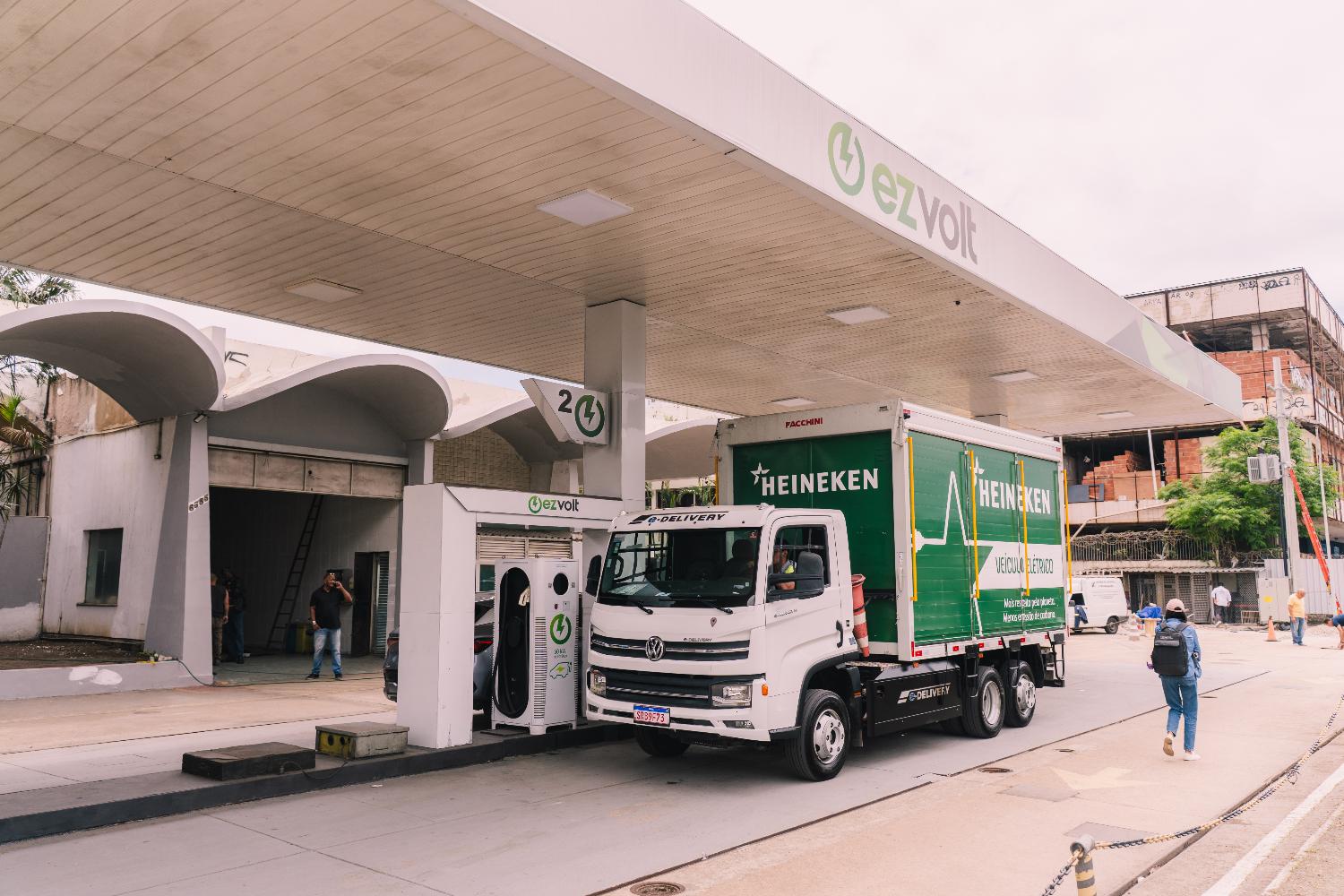
The automaker is the only one of the City-Business Alliance (CBA) to participate in the international Laneshift Rio project to decarbonize cargo transport in the capital of Rio de Janeiro
A pioneer in electromobility in cargo transportation in the country, Volkswagen Truck & Bus will dedicate all its expertise to provide consulting and technical support in the international Laneshift Rio program, a global initiative led by C40 Cities and The Climate Pledge for the expansion of public charging infrastructure for electric vehicles in the city of Rio de Janeiro. The automaker is part of the Laneshift City-Business Alliance, alongside other strategic companies.
The e-Delivery, the first 100% electric truck developed and produced in Brazil, is among the vehicles involved in the project aimed at testing and improving a public recharging hub model. Focusing on sustainable solutions for commercial transport, the company sees the initiative as an opportunity to collaborate with the government and other partners in building a robust public charging infrastructure for electric cargo vehicles.
“Public-private collaboration is essential to accelerate the decarbonization of freight transport. With Laneshift, we have the opportunity to test real public charging models and contribute our experience in electric vehicles to make this transition a reality in Brazilian cities, reducing customers' dependence on their own infrastructure and also expanding opportunities for fleet expansion," says Roberto Cortes, CEO and president of Volkswagen Truck & Bus.
The Laneshift initiative foresees the installation of 15 new public charging stations by 2028. Since July, the alliance has been operating a demonstration charging project, with two charging stations open to the public in Rio: Eleposto Carioca, in Barra da Tijuca, the first charging hub in a public area in Rio de Janeiro, and another on Avenida Brasil, which function as urban laboratories. Volkswagen Truck & Bus supports this testing phase as part of its strategy to foster the use of electric vehicles in real operations, contributing with data and experiences that will facilitate the expansion of the recharging network in the municipality.
The pilot already accounts for more than 1,000 recharging sessions and 35 MWh consumed with different cargo vehicles circulating in the city, with 20% of all public recharges in the city already corresponding to cargo transport. The evidence collected will support the implementation of the new points, a goal included in the city's 2025-2028 Strategic Plan with technical support from Laneshift. "Collaboration between governments, companies and society is the key to building a cleaner and more sustainable future for Rio and for urban logistics, ensuring the reduction of pollution and the creation of new opportunities," said Gabriel Tenenbaum, Director of Implementation for Latin America at C40.
